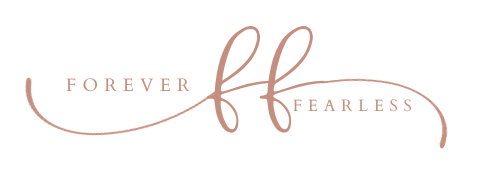By Lisa Newman-Morris
Self sabotage is a very real struggle
Self-Sabotage, Someone once asked me “Why do you always insist on taking the hard road.” I replied, “Why do you assume I see 2 roads?” As a consultant and coach, I can easily relate to this mindset and I know it is a very real struggle for many people. Of course, I’m talking about self sabotage.
This probably speaks to you if you’re someone who finds it impossible to break out of bad habits or destructive behaviour. You know you’re doing things you shouldn’t but you can’t seem to make better choices.
Why do you insist on taking the hard road? Why do you assume I see two roads? Click To Tweet
Why do you do that?
I’m absolutely sure you don’t wake up every morning and say to yourself “how can I make my life as hard as possible today?” Nobody does that. Yet for some reason, you continue to do things you know you shouldn’t and you continue to not do the things that you know you should.
Am I speaking to you right now? If so, know this: you’re completely normal, you’re not alone, you’re not weak, stupid or crazy and you can change.
Why do you self sabotage?
Human beings are complex characters. It’s our nature to find a state of equilibrium. That means we seek out the familiar and we avoid change wherever possible. Most of all we usually try and find the path of least resistance. A bit like a lightning bolt.
In your mind, the hard road is actually not the hard road, it’s the familiar road. The easiest road. Maybe the only road. You don’t see options. You continue to choose the hard road for any number of reasons.
Here’s 8 reasons which might explain why you do this:
- You prefer to stick with what you know – Familiarity is safe. According to Maslow’s Hierarchy of Needs, feeling safe is one of the five basic human needs. You choose familiarity, even when you know it’s not the best choice.
Try this >> Commit to trying one new thing per week
If you only do what you’ve always done, you’ll only get what you’ve always got. There are many interpretations of this great quote but it sums up the process of learning so well. You can’t make progress by repeatedly doing the same thing. Imagine going through the rest of your life never trying another new thing. It almost seems implausible to think about it like this in the context of the rest of your life. Each moment you have a choice. Life is made up of hundreds of thousands of individual moments, so at every opportunity, find courage and step out of the familiar and try something new.
2) You lack a bit of self-belief – You’re not really sure you can do it or you don’t believe there is a better way.
Try this >> Acknowledge what you’re good at.
A lack of self belief can result from any number of things, but one of the common causes is from focusing on all the things you don’t know or can’t yet do. Instead of focusing on what you can’t do, acknowledge what you can do and what you’re good at. This will help to build your confidence and give you the courage to try more. Never forget all the things you’ve learnt already throughout your life, and never underestimate your ability to learn new things at any time.
3) You’re unsure of the purpose – You can change, as long as there’s a good reason. But you’re not really clear yet  on what that reason is.
on what that reason is.
Try this >> Focus on your why
When the why becomes clear, the how becomes easy. When you have clarity around your purpose and your goals, it becomes much easier to do what’s required. When you know why you’re doing something, it seems easier and more reasonable to get uncomfortable and try new things.
4) You’re uncomfortable with change – It’s uncomfortable changing because it’s scary, difficult and full of the unknown.
Try this >> Practice being uncomfortable.
Getting out of your comfort zone is something that needs to be practiced. It’s not natural to put yourself in uncomfortable situations. Your instinct is to stay safe, stick with what’s familiar and avoid unknown situations to protect yourself from danger and harm.
Getting uncomfortable is a skill which can be learnt. Elite performers in sport, in business, in fact in any area are extremely good at taking themselves out of their comfort zone and being ok with that. In fact they thrive on the feeling of being uncomfortable. When you practice being uncomfortable, you can condition yourself to realise it’s not that bad. In, time, you can actually start to learn to enjoy the challenge and appreciate the opportunities it presents.
5) You’re stuck in your comfort zone – It’s in the name! There’s comfort in your comfort zone, but not much growth happens there.
Try this >> Do one thing that scares you each week
 Your comfort zone may feel safe but it’s one of the most dangerous places to be. Facing your fear is scary, but it’s the fastest way to grow. Fear is a bully. When you give in to it, it has control.
Your comfort zone may feel safe but it’s one of the most dangerous places to be. Facing your fear is scary, but it’s the fastest way to grow. Fear is a bully. When you give in to it, it has control.
You are designed to adapt, but you have to give yourself a reason to change. Just like a skeletal muscle which needs increasing resistance to grow, you need to be challenged before the adaptation process kicks in. A body builder cannot gain strength or size by lifting the same weight day after day. In fact, because of how adaptable the body is, he will start going backwards within a matter of weeks. The body quickly becomes more efficient at doing the same thing. You have to give yourself a reason to adapt, and when you do, you will be surprised how quickly you will settle into a new normal. Start small by doing one thing that scares each week.
Here are some examples:
- Say hello to a stranger
- Express your opinion to someone
- Write your thoughts or feelings for others to read
- Do a physical activity that frightens you
- Try a new food
- Speak publically
- Say yes to a task at work you wouldn’t normally be responsible for
- Start a new sport
- Join a networking group
- Start a blog
- Teach someone something you are good at
- Run a workshop
6) Fear of failure – You don’t like failing and most other people are the same. What if the other road is not all it’s cracked up to be?
Try this >> Celebrate failure and enjoy mistakes
As shocking as it may sound, you’re not perfect, so stop trying to be! Everyone starts at the beginning at one point in their life. Anyone who has achieved mastery in a particular area started as a novice.
We are conditioned throughout our lives to believe that failure is bad. Mistakes are to be avoided at all costs. Our parents started protecting us from mistakes from a very early age. They caught us when we fell. They comforted us when we stuffed up. They tried to teach us ways to avoid the same mistakes in the future.
Our school system is designed to teach us to strive for no mistakes. Mistakes are looked down upon.
When a baby learns to walk, she falls down, a lot. She makes mistakes, she learns something, she tries again and she makes mistakes again. She makes mistake after mistake after mistake. And through hundreds of mistakes, she learns to walk. When she makes her first mistake, she doesn’t fall down, start crying and give up. She doesn’t feel shame or humiliation. She tries again and again, until she masters the skill.
7) Fear of success – This is one of the most complex fears. Success has all kinds of consequences such as more responsibility, more commitment or the inability to be able to handle the workload. Previously I have written about how to Harness Your Fear. Fear of success can actually bring up the same kind of anxieties as fear of failure.
Try this >> Identify where your fear is coming from and what it’s attached to.
Which part of success is holding you back and why are you standing in your own way. Fear of success is one of those things only you can address so it’s important to work out why you feel this way and what is stopping you from reaching your potential.
8) Fear of the unknown – When you don’t know what’s around the corner, you tend to avoid it rather than risk the consequences. Self-preservation is a strong motivator to resisting change.
Try this >> Ask yourself these questions:
- What’s the worst that can happen?
- What’s the best thing that can happen?
- What’s the most likely thing that can happen?
A fear of the unknown occurs when you build a picture in your head from the stories you tell yourself, even when they’re not realistic or likely to even happen.
Acknowledge the worst case scenario so you can plan for how you would tackle the problem, should it arise. Recognize the potential and possibilities at your fingertips so you can focus your efforts in the right direction. Finally, bring yourself back to the moment. Concentrate on what is in your control and the most likely outcome.
Knowledge is power
Knowledge can be power because when you can recognize why you self-sabotage, you can start to take action to change your behavior. If you really want to make better decisions, start to acknowledge, understand and then take responsibility.
You can do it!
____________________________________
Lisa Newman-Morris is a Business Consultant. Her passion is inspiring and educating business owners and emerging entrepreneurs to master business fundamentals. She works with organizations on how to grow their business without needing more leads.
Web: https://lisanewmanmorris.com.au
Facebook: https://www.facebook.com/lnewmanmorris




